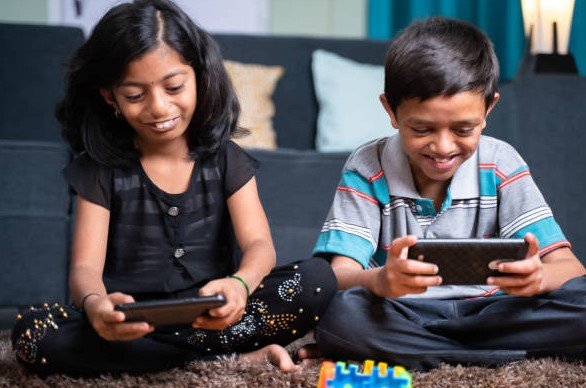In a bold move to fight digital addiction, officials in Toyoake, a town in Japan’s Aichi Prefecture, have proposed an ordinance urging all residents to cap their smartphone use at two hours per day outside work or school. This non binding measure, set for a vote next month, aims to address rising concerns over sleep loss and mental health issues but has sparked fierce backlash from locals who see it as an overreach on personal freedoms.
Details of the Proposed Ordinance
The draft ordinance from Toyoake calls for residents of all ages to limit non essential smartphone time to just two hours daily. It includes specific guidelines for younger users, such as no phone use after 9 p.m. for elementary school children and 10 p.m. for teens.
City leaders plan to submit the bill to the local assembly soon, with no penalties for those who exceed the limit. The goal is to encourage healthier habits through awareness rather than strict enforcement.
Officials point to studies showing excessive screen time harms sleep and social bonds. They hope this sets an example for other areas in Japan facing similar problems.
Reasons Driving the Initiative
Toyoake’s push stems from growing worries about smartphone addiction across Japan. Recent data shows average daily screen time for adults has climbed to over four hours, linking to higher rates of anxiety and poor sleep.

Health experts note that blue light from screens disrupts natural sleep cycles, leading to widespread fatigue. In children, overuse ties to lower academic performance and weaker family ties.
The town cites national surveys revealing that one in five Japanese teens reports sleep issues due to late night scrolling. This ordinance seeks to reverse that trend by promoting offline activities.
Local leaders also reference the Covid era spike in device use, which worsened isolation. They argue a voluntary limit could rebuild community connections and boost overall well being.
Backlash and Public Reactions
The proposal has ignited debate online and in the community, with many calling it unrealistic in a tech driven world. Critics argue that two hours fails to account for essential tasks like navigation or staying in touch with family.
Social media users have voiced frustration, pointing out that work often spills into personal time via apps. Some label the idea as outdated, ignoring how smartphones aid daily life.
Despite the outcry, a few residents support it, sharing stories of regained productivity after cutting back on screens. Polls show mixed views, with younger adults most opposed.
One common complaint is the lack of enforcement, questioning if a suggestion alone can change habits. Debates continue as the vote approaches.
Here are key points from public feedback:
- Many see it as an infringement on freedom.
- Parents worry about monitoring kids effectively.
- Supporters highlight benefits for mental health.
- Online polls reveal 60 percent opposition.
Similar Efforts in Japan and Beyond
Japan has seen other attempts to curb device overuse. For instance, some schools ban phones during class, while companies offer digital detox programs.
In China, strict rules limit youth gaming to one hour on weekdays, inspiring Toyoake’s approach. Yet experts warn such limits must adapt to cultural needs.
Globally, places like France restrict work emails after hours to promote balance. These examples show a trend toward regulating tech for better health.
Toyoake’s plan aligns with Japan’s push for work life harmony, amid reports of rising burnout. It could influence national policy if successful.
| Country/Region | Daily Smartphone Limit Initiative | Key Focus | Enforcement Level |
|---|---|---|---|
| Japan (Toyoake) | 2 hours outside work/school | Addiction and sleep | Non binding |
| China | 1 hour gaming for minors | Youth protection | Strict with penalties |
| France | No work emails after hours | Work life balance | Legal for businesses |
| Singapore | School phone bans | Education focus | School rules only |
Potential Impacts on Residents
If adopted, the ordinance might encourage more face to face interactions in Toyoake’s 69,000 strong community. Families could benefit from set device free times, fostering stronger bonds.
However, challenges remain, such as tracking usage without invasive tools. Businesses reliant on apps might face hurdles, though the limit excludes work.
Long term, it could lower health care costs tied to sleep disorders. Recent studies predict a 20 percent drop in addiction cases with consistent limits.
On the flip side, resistance might lead to underground overuse, undermining the effort. Officials plan awareness campaigns to build support.
Experts suggest starting with education on mindful tech use rather than caps. This could make the initiative more palatable.
Expert Views and Broader Context
Health professionals praise the intent but question feasibility. A sleep specialist notes that quality of use matters more than quantity, advising against addictive apps.
Psychologists link Japan’s high smartphone penetration, at 95 percent for teens, to social issues like isolation. They recommend combining limits with therapy options.
This comes amid global talks on tech regulation, following events like the 2024 U.S. surgeon general’s warning on social media harms. Japan aims to lead in balanced digital living.
As debates heat up, Toyoake’s move highlights the struggle between innovation and well being in modern society.
What do you think about limiting smartphone use? Share your thoughts in the comments below and spread the word if this story resonates with you.








